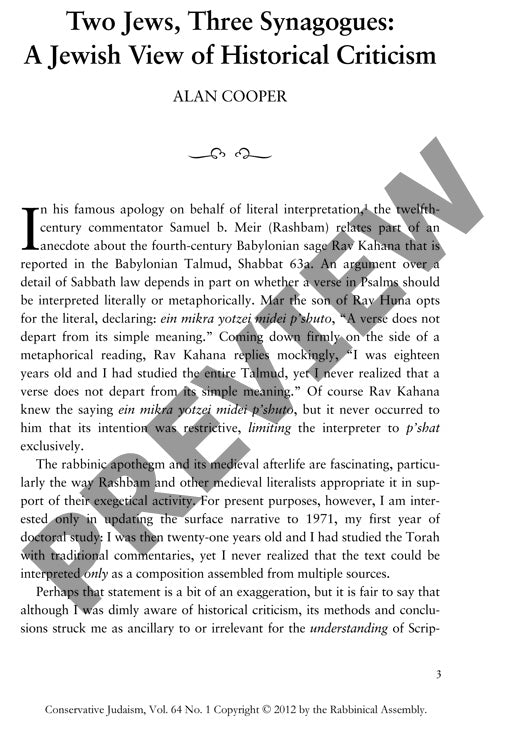Two Jews Three Synagogues
Couldn't load pickup availability
This article examines the complex relationship between Jewish scholarship and historical-critical biblical studies, tracing the evolution from traditional resistance to contemporary accommodation. The author employs a historical survey methodology, analyzing key theological and hermeneutical developments from medieval commentators through modern scholarship. The study identifies two fundamental tensions underlying Jewish engagement with historical criticism: ontological questions regarding the sacred nature of Torah as divine versus human composition, and hermeneutical concerns about the authority of traditional rabbinic interpretation. Historical analysis reveals that Jewish resistance to biblical criticism emerged during the European Enlightenment period, driven by anti-Jewish elements within the discipline, institutional exclusion of Jewish scholars, and internal Orthodox-Reform conflicts. The research demonstrates how medieval Jewish exegetes, particularly Abraham ibn Ezra, developed sophisticated interpretive frameworks that potentially reconciled literal biblical reading with rabbinic authority through concepts like *asmakhta*. The author argues that recent methodological pluralism in biblical studies, combined with increased participation by previously marginalized groups, has created new opportunities for Jewish scholars to engage historical criticism while maintaining traditional commitments. The study concludes that contemporary biblical scholarship allows for complementary rather than competing interpretive approaches, enabling Jewish scholars to participate meaningfully in critical discourse without abandoning religious frameworks.

More Information
-
Physical Description
-
Publication Information
Published 2012
ISBN
-
Publication Credits

